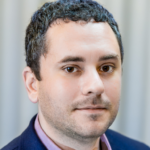heading
Our approach
The Shared Waters Partnership (SWP) is a global programme designed to improve cooperation over transboundary waters. The programme is active in regions where water can be a source of conflict – or where water can serve as a catalyst for peace and stability.
The Shared Waters Partnership works with stakeholders such as governments, regional organizations, civil society, media, academia, and young professionals. Through the programme, stakeholders can engage in processes to strengthen cooperative transboundary water management practices that play a critical role in building and maintaining peace within and between countries.
With a strong focus on SIWI’s cross-cutting issues of gender equality, youth empowerment and a human rights-based approach, the Shared Waters Partnership strives to enhance inclusive decision-making through engaging and elevating a diverse cross-section of stakeholders in decisions around shared waters.
One example is the Women in Water Diplomacy Network in the Nile which promotes women’s participation in high-level water diplomacy processes. The Network engages senior and mid-career women professionals from Ministries of Water and Ministries of Foreign Affairs, as well as other relevant line ministries from across the Nile Basin. The aim is to enhance the collective capacity of women throughout the basin and to support the engagement of women water leaders in decision-making and peace building processes.
The Shared Waters Partnership also seeks to empower young professionals and to more generally make the case for youth engagement in water diplomacy. The working paper Making Waves: Youth Engagement in Water Diplomacy explains why this is so important.
The Eastern Nile Journalist Network is another Shared Waters Partnership activity that aims to strengthen unbiased high-quality reporting on transboundary water issues. The Network offers capacity-building and cooperation opportunities to reporters in the region. Here you can read a story from one of participating journalists.
The programme also acts as a partnership platform for coordination of diplomatic and development efforts.
